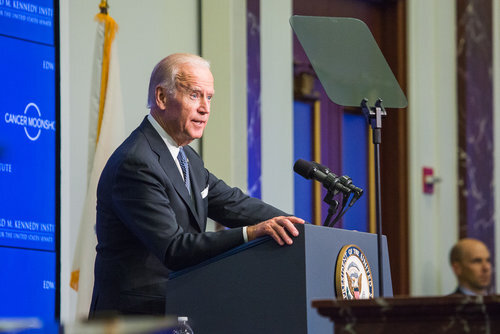Exposing the Cracks: How Haitian Refugees Are Revealing American Divisions and Hypocrisies
Haiti is in a crisis.
Early this summer, sitting president Jovenel Moïse was assassinated in his home in Port-Au-Prince. Only a month later, a devastating 7.2 earthquake hit the nation, killing over two thousand people. With political unrest and a health and safety crisis brewing, many Haitians chose to emigrate from the country in hopes of finding better opportunities for themselves and their children.
Initially, many migrants went to South America, hoping to find work in countries such as Brazil and Chile. However, due to pandemic-related pressures on Latin American economies, many Haitian refugees struggled to stay afloat and chose to travel northwards, seeking asylum in the United States.
The US government is taking a strict approach to these incoming migrants. Refugees are being sent on planes back to Haiti, even though many of them had not been living in the country for months or years before their deportations. Migrants arriving in Texas after crossing the Rio Grande set up tents under a bridge, living in conditions without clean water, adequate food, or toilets. Others who crossed were faced with U.S. Border Patrol agents on horseback, armed with whips, who attempted to turn them back to the other side of the river.
Videos of the officers confronting migrants prompted outcries on social media and mixed responses from United States government officials and politicians. When asked about the images, Border Patrol Chief Raul L. Ortiz said the agents were sent under normal protocols to “see if any migrants were in distress,” avoiding acknowledgment of the confrontations and their severity. The secretary of US Homeland Security stated that the events would be looked into, but made it clear that migrants should not be entering the United States from the Rio Grande.
Criticism of the handling of the crisis came from Democrats including Vice President Kamala Harris and Press Secretary Jen Psaki, who expressed concern and regret over the treatment of migrants and assured the press that President Biden’s administration would remedy the situation. At the same time, Texas Governor Greg Abbott sent Texas police and National Guard troops to help Border Patrol agents control the influx of people. Abbot even offered jobs to the officers on horseback, claiming they were taking charge of a situation that the Biden Administration had failed to subdue.
The arrival of Haitian refugees is one of many events that have highlighted divisions in the American political system which remain strong even after the 2020 election. The only consensus seems to be disappointment with the agents acting under President Biden’s border policy, with critiques coming from Democrats and Republicans alike. However, opposition from both parties is not new to American politics and will take more than a few months to heal. What is more concerning is the disconnect the Haitian crisis has shown in American mindsets, particularly surrounding the spread of COVID-19.
In an interview, Homeland Security Secretary Alejandro Mayorkas stated that the refugees camped in Texas had not been tested for COVID-19. Tucker Carlson of Fox News expressed concern that none of the migrants allowed into America had been screened, while Greg Abbott said that Biden was giving migrants a “free pass” to “spread[…] COVID in our communities”.
Debates on whether asylum seekers pose a health risk have shown that Americans still struggle to see their own country as a weak link in the global pandemic response. Vaccinations in Texas have slowed, and the state remains under the national average for vaccination percentages. Additionally, the state has been the site of numerous pushbacks against mask mandates, with the main battleground being public schools and businesses. Meanwhile, COVID deaths in Haiti have remained among the lowest in the world, as the country had rejected a shipment of AstraZeneca vaccines and adopted a pre-pandemic lifestyle before the events of this summer.
There is an ideological disconnect in America between concern for migrants carrying COVID and the realities of COVID cases already in the United States. This is made more frustrating given the recent summer vacation season, during which countless Americans picked up their laptops and brought work to remote and tropical locations, sometimes permanently. TikTok and Instagram trends included individuals advising people to move to Hawaii with friends, despite the state’s pleas to limit tourism due to water shortages. If it is so easy to understand escaping somewhere during a pandemic for mental health, why is it difficult to accept migrants who leave countries riddled with instability and few opportunities?
America has a long history of creating unstable political situations and failing to accept the migrants that consequently come knocking on its doorstep, pushed out of their homes by the effects of American intervention. Haiti is no exception, but the complications and excuses brought by the coronavirus pandemic make the treatment of the country’s refugees all the more heartbreaking. Active practices of empathy and compassion are required for Americans to see past their pandemic fears and create a welcoming space for Haitians who arrive at the United States’ borders. By opening their doors and sponsoring migrants, some Americans are already proving that acceptance is possible. Hopefully, soon, more will follow and begin to fulfill the debt the US owes to others.
Image courtesy of Eric Haynes via Seton Hall University Creative Commons License, © 2021, some rights reserved.



